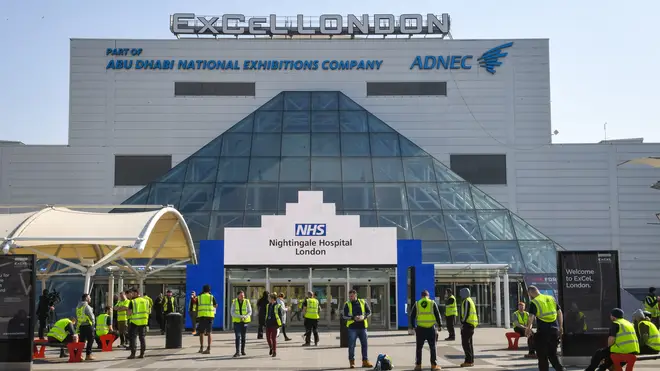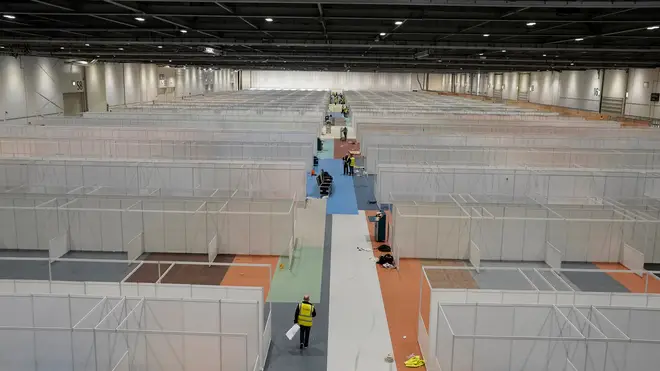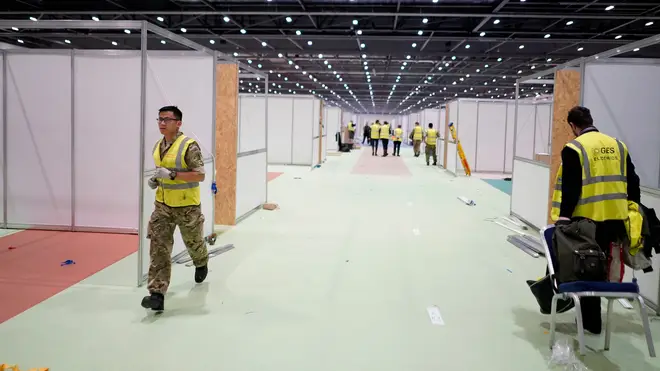
Simon Marks 3pm - 7pm
28 March 2020, 14:34

New photos have given a first look inside the Nightingale Hospital, a temporary facility being erected at London's ExCel Centre to treat Covid-19 patients.
Pictures have been released showing rows of cubicles being hastily erected with help of the military to treat an expected surge of coronavirus patients in London.
Soldiers and trade contractors are converting the ExCel exhibition centre, which usually hosts events, trade shows and conferences, into the first of the NHS Nightingale hospitals.

The effort should see the temporary facility in the capital's Docklands open its doors this week to its first patients, with capacity ultimately reaching 4,000 beds.
Initially 500 beds equipped with ventilators and oxygen will be used to treat the seriously ill, and their numbers are expected to swell in the capital ahead of the rest of the nation.

The NHS will build more temporary hospitals in Birmingham, Manchester, Cardiff and Scotland.
The task of boosting critical care capacity has been under way since the health service declared an emergency at the end of January.
Before the scale of the crisis became clear, the UK was believed to have had one of the lowest proportions of intensive care units in Europe.
NHS England chief executive Sir Simon Stevens said: "Across England, we have reconfigured hospital services, so that 33,000 hospital beds are available to treat further coronavirus patients."

PM tests positive for Covid-19: LBC explains next steps
The National Exhibition Centre in Birmingham will add an initial 500 beds, with the potential to grow to 2,000 if necessary.
Manchester Central Convention Complex will add 500 more, with the capacity to expand to 1,000, and Cardiff's Principality Stadium will provide up to 2,000 more.
Efforts are underway to source doctors nurses and non-clinical workers to staff the units.
It comes as hundreds of thousands of volunteers across the UK have signed up to work for the NHS.